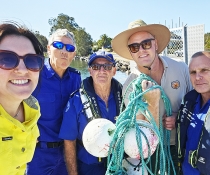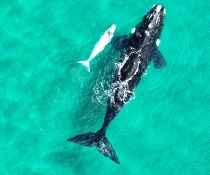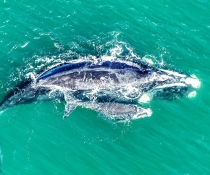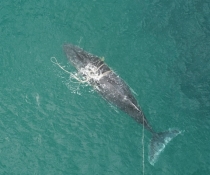NPWS' expert whale rescue team on standby
The National Parks and Wildlife Service's (NPWS) dedicated whale rescue team have been out on the water, honing their whale rescue skills off Sydney's Pittwater.
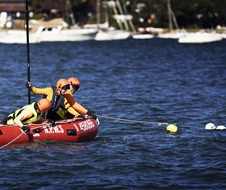
Mel Hall from the NPWS said last week around 21 crew launched from Ku-ring-gai Chase National Park to practice cutting ropes and buoys off a fake whale tail using specialist tools.
"Each year NPWS responds to reports of whales that have ropes and lines tangled around their tail or pectoral fins," said Ms Hall.
"The safety of our staff attempting a rescue is the absolutely priority and each year the team does this training to refresh their skills.
"If conditions allow, we launch small inflatable boats, approach the animal, assess the entanglement and the animal's condition, speed and behaviour.
"We then determine the best strategy to cut it free, which sometimes involves slowing the animal down by temporarily attaching buoys.
"These rescue missions are inherently dangerous as we are not only up against changing sea conditions, but also large, unpredictable and distressed animals, and occasionally other marine predators.
"It can be a daunting task so our goal with this training is to make sure our staff are fully equipped and ready to respond," said Ms Hall.
While NPWS hopes not to have to use these rescue skills, with around 40,000 whales expected to join the 'humpback highway' between now and October, there is a chance that some will get into trouble.
Last year NPWS freed entangled whales during 5 separate rescues, including the juvenile whale freed off Sydney's Whale Beach in October 2021.
The best way for people to help these animals is to immediately report sightings of entangled or distressed whales to authorities. Members of the public are encouraged to keep an eye on the whale from the shore to help NPWS swiftly locate the distressed animal.
Anyone who sees a distressed or entangled whale should not attempt to free it but call NPWS on 13000PARKS (1300 072 757) or ORRCA on 02 9415 3333.


